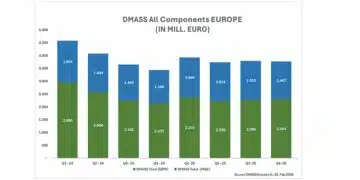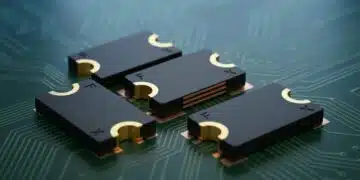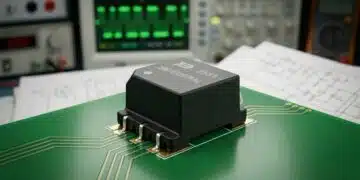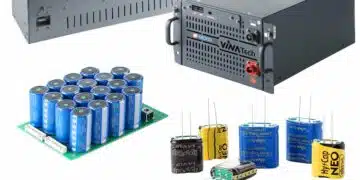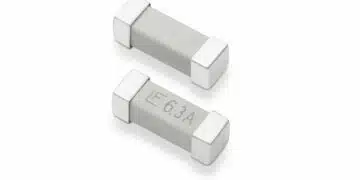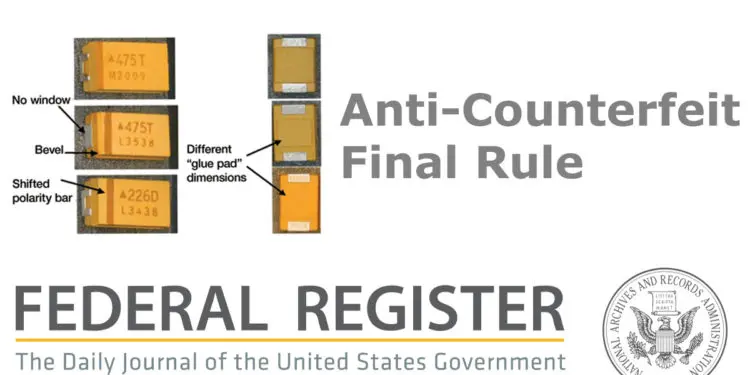The Department of Defense, NASA and the General Services Administration are issuing a final rule amending the Federal Acquisition Regulation (FAR) to require contractors and subcontractors to report to the Government-Industry Data Exchange Program (GIDEP) certain counterfeit or suspect counterfeit parts and certain major or critical non-conformances.
To date, reporting suspicious products to GIDEP has been voluntary. Companies often hesitate to flag counterfeits because it implies their supply chian is flawed. Other companies don’t want to name their suppliers for fear it will endanger relationships.
The rule concentrates on complex items with critical applications, where the failure of the item could injure personnel or jeopardize a vital agency mission. In accordance with the Office of Federal Procurement Policy (OFPP) Policy Letter 91-3, all Government agencies use GIDEP as the central data base for receiving and disseminating information about nonconforming products. Contractor participation has been largely voluntary. This rule requires contractors to screen and report major or critical nonconformances in order to reduce the risk of counterfeit and other nonconforming items entering the supply chain and impacting the performance of mission critical items where item failure could result in loss of high value items or loss of life.
Applicability.
The final rule is significantly descoped:
- It does not apply to contracts and subcontracts for the acquisition of commercial items, including commercially available off-the-shelf (COTS) items.
- Section 818(c)(4) of the NDAA for FY 2012 will not apply to contracts and subcontracts at or below the simplified acquisition threshold (SAT).
- Rather than applying to all supplies, in addition to the requirements for section 818(c)(4) with regard to electronic parts for DoD, the rule focuses on supplies that require higher-level quality standards or are determined to be critical items (definition added).
- The rule also exempts medical devices that are subject to the Food and Drug Administration reporting requirements at 21 CFR 803; foreign corporations or partnerships that do not have an office, place of business, or paying agent in the United States; counterfeit, suspect counterfeit, or nonconforming items that are the subject of an on-going criminal investigation, unless the report is approved by the cognizant law-enforcement agency; and nonconforming items (other than counterfeit or suspect counterfeit items) for which it can be confirmed that the organization where the defect was generated (e.g., original component manufacturer, original equipment manufacturer, aftermarket manufacturer, or distributor that alters item properties or configuration) has not released the item to more than one customer.
- Flowdown to subcontracts is similarly descoped. The contractor is prohibited from altering the clause other than to identify the appropriate parties.
Read the full rule published by U.S. Federal Register below



